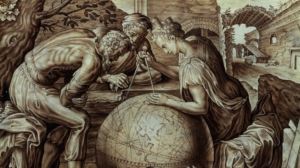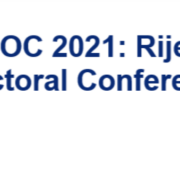Chronology of Practice: Chinese Practice in Private International Law in 2020
This post has been prepared by He Qisheng, Professor of International Law, Peking University Law School, and Chairman at the Peking University International Economical Law Institute, has published the 7th Survey on Chinese Practice in Private International Law.
This survey contains materials reflecting the practice of Chinese private international law in 2020. First, regarding changes in the statutory framework of private international law in China, three legislative acts, one administrative regulation on the Unreliable Entity List and ten judicial interpretations of the Supreme People’s Court were adopted or amended in 2020 on a wide range of matters, including conflict of laws, punitive damages, international civil procedure, etc. Second, 11 typical cases involving Chinse courts’ jurisdiction are selected to highlight the development in Chinese private international law, involving standard essential patents, abuse of market dominance, declaration of non-infringement of patent, asymmetric choice of court agreement and other matters. Third, nine cases on choice of law questions relating, in particular, to habitual residence, rights in rem, matrimonial property regimes and ascertainment of foreign law, are examined. Fourth, five cases involving anti-suit injunction or anti-enforcement injunction are reported and one introduced in detail. Fifth, the first occasion for on international judicial assistance of extracting DNA, as well as three representative cases on the recognition and enforcement of foreign judgments, are discussed. The Statistics of international judicial assistance cases in China is first released in this survey. Finally, this survey also covers five recent decisions illustrating Chinese courts’ pro-arbitration attitude towards the uncertainty brought about by contractual clauses referring to both litigation and arbitration.
Here are the links to the article:
· Standard link (you may share this link anywhere):
https://academic.oup.com/chinesejil/advance-article-abstract/doi/10.1093/chinesejil/jmab031/6449363
· Free-access link (see below for how you may use this link):
https://academic.oup.com/chinesejil/advance-article/doi/10.1093/chinesejil/jmab031/6449363?guestAccessKey=4f7f76a9-41f4-4c46-9366-ea0198ab74ca
Table of Contents
- Introduction
- Overview
II.A. Report on the Work of the SPC in 2020
II.B. Laws and the SPC’s interpretation
II.C. Provisions on punitive damages
III. Jurisdiction
III.A. Intellectual property
III.A.i. Jurisdiction over the standard essential patent disputes
III.A.ii. Jurisdiction over the disputes of abuse of market dominance
III.A.iii. Jurisdiction over the giving of declaratory judgment in patent disputes
III.B. Choice of court agreement
III.C.i. An asymmetric choice of court agreement
III.C.ii. Choice of court agreement and hierarchical jurisdiction of the Chinese court system
III.C. Other choices in contracts
- Choice of law
IV.A. Habitual residence
IV.B. Proprietary rights
IV.C. Matrimonial assets
IV.D. Ascertainment of foreign law
- International judicial assistance
V.A. Statistics of judicial assistance in civil or commercial matters
V.B. Taking of evidence for foreign courts
- Action preservation and anti-suit Injunction
VII. Recognition and enforcement of foreign judgments
VIII. International arbitration
VIII.A. Agreements with jurisdiction and arbitration clauses
VIII.B. Construction on “judgment upon the award”



